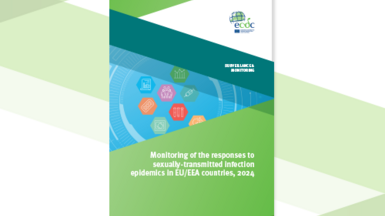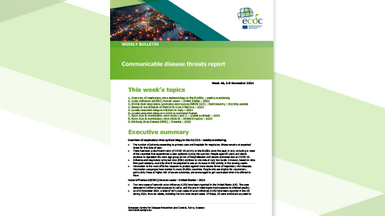EMIS 2010: The European Men-Who-Have-Sex-With-Men Internet Survey
This report comprises the findings of an internet survey among men who have sex with men (MSM) from 38 European countries, making a total sample of over 180 000 men across Europe. It is the largest transnational survey among MSM ever conducted. The survey focused on knowledge of HIV and sexually transmitted infections (STIs), sexual behaviour and the use of services for HIV and sexual health. The results show considerable differences across the 38 national samples, reflecting the diversity in Europe with respect to the cultural and legal conditions affecting MSM.
Executive Summary
Recent HIV/AIDS surveillance data show that the number of people living with HIV in Europe is increasing and that HIV infection among men who have sex with men is the predominant mode of transmission in the countries of the European Union and European Economic Area (EU/EEA).
In 2010, the European Men-Who-Have-Sex-With-Men Internet Survey (EMIS) collected comparable data in 25 languages, advertised and promoted on at least 237 national and transnational websites for MSM and via non-governmental organisations. As such, it is the largest transnational survey among MSM ever conducted – regarding the number of participants, the number of countries covered and the number of different language versions available. The survey aimed at providing data for the future planning of public health interventions and (if repeated) to facilitate the monitoring of changes over time in the behaviour, needs and interventions affecting HIV incidence among MSM.
The response from more than 180 000 MSM in Europe to a survey that focused on knowledge about HIV and sexually transmitted infections, sexual behaviour, access to care, HIV-related stigma and the use of services for HIV and sexual health is a strong indication that this group cares about HIV and sexual health issues.
The joint technical report provides the results of mainly descriptive analyses of the survey variables. It represents a first, essential step towards making the rich data set accessible for further in-depth analysis. Scientists who are interested in the data are invited to collaborate with the EMIS Network for further analysis of the dataset.
The survey was designed by six associate partners based in five countries (Germany, Italy, the Netherlands, Spain and the UK) and was funded by the Health programme 2008-2013 of the European Commission, through the Executive Agency for Health and Consumers (EAHC) and co-funded by the six associate partners.







